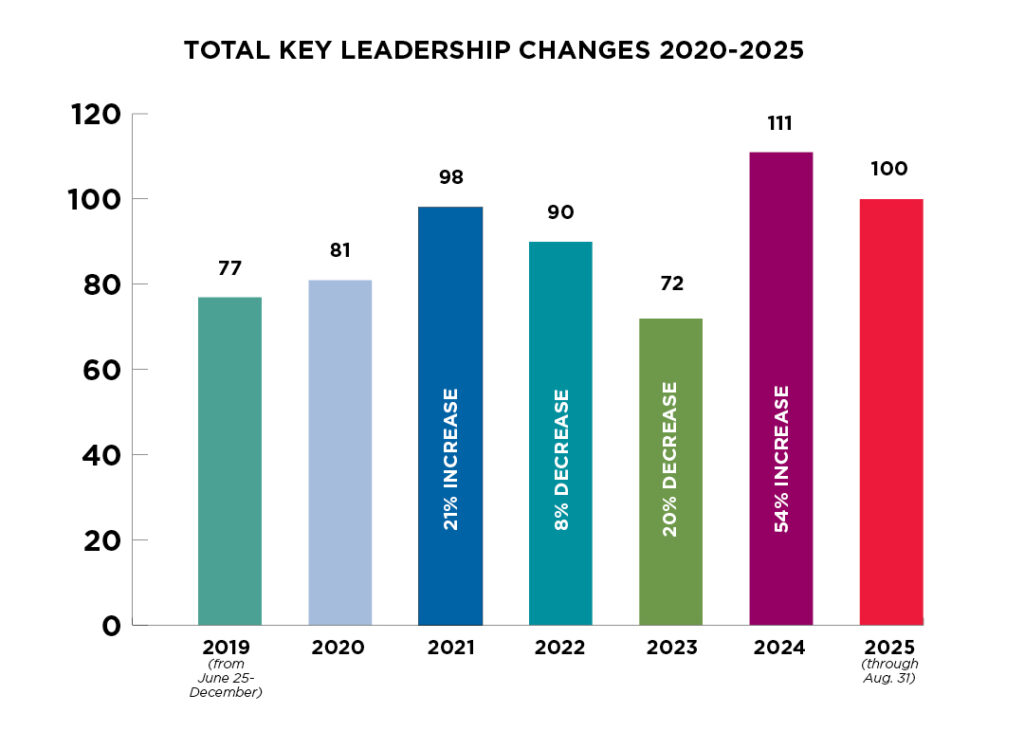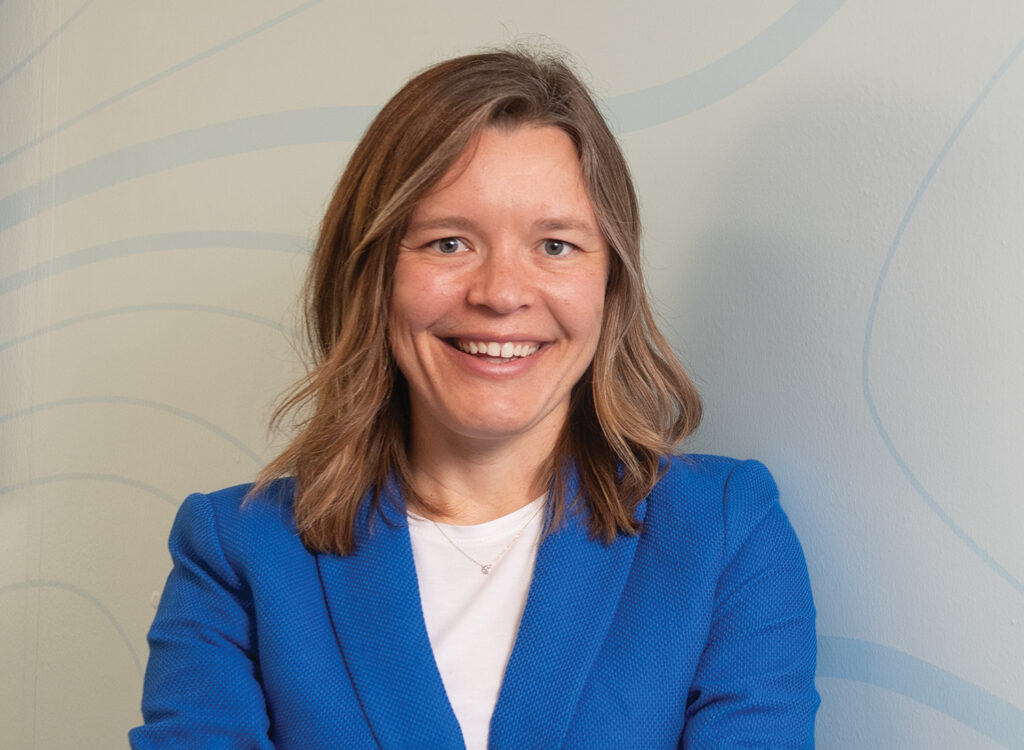A Closer Look: Linda Goodwin
Chief operating officer/chief nursing officer Mercy Medical Center-Des Moines

JOE GARDYASZ Aug 21, 2018 | 5:03 pm
6 min read time
1,367 wordsBusiness Record Insider, Health and WellnessLinda Goodwin is eager to implement fresh ideas at Mercy Medical Center-Des Moines in her dual role as chief operating officer/chief nursing officer. Before joining Mercy on June 1, she was regional group chief nursing officer for Centura Health System’s Mountain North Denver Region in Colorado. Goodwin spent the first 18 years of her nursing career at Salina Regional Health Center in Kansas, progressing up the management chain. She began her first chief nursing officer position in 1999 in Hutchinson, Kan., and moved up through successive chief nursing roles at hospitals in Kansas and Colorado. As Mercy’s chief nursing executive, she leads nursing on all of Mercy-Des Moines’ campuses, including Mercy Medical Center-Des Moines, West Lakes, Centerville and Skiff in Newton. Goodwin has already introduced Mercy’s senior leaders to daily scrum sessions as part of a strategy to quickly move the organization forward on a number of fronts. Among her goals for Mercy is to apply for Magnet certification with the American Nursing Association’s accrediting body, a status currently held by just a handful of hospitals in the state.
How did you get started in health care administration?
I was actually an accountant, and I became an accountant fairly early out of high school and a couple of years of college. I was working for an organization in Kansas, and my mother got diagnosed with lung cancer. She was a nurse, and she always wanted me to be a nurse. So my husband and I committed to moving back because I was the only daughter, and she really needed me. Towards her death, I really fell in love with the idea of a career giving back to people. Although accounting is very good and an expertise I carry with me in this role, it did not give me the mission I was seeking in my life.
How did you connect with Mercy-Des Moines?
During that time [at Centura in Denver] I met Mike Wegner [previously CFO there and now CFO of Mercy-Des Moines], and he had always spoken very highly of Iowa. … When this position came open, he said, “What do you think?” I met the team and I fell in love with the opportunity here. … The people here are excellent and they’re passionate about the mission and the community. And it’s the right-size city to be able to move a little bit more quickly than you can in Denver.
What’s the value of integrating the COO and CNE roles?
From being on the chief nursing executive side for most of my career, I really saw that that becomes siloed from the rest of the organization. The beauty of being able to lead both is to be able to break down those barriers and really move operations in totality towards the goals of the organization. The challenge is that sometimes I think I get stereotyped into the nursing side. When people meet me and hear some of the vision we have here, I think that surprises them that a nurse from a financial or strategy side would really have the skill sets to drive more than just nursing forward.
What sort of leadership lessons do you bring to this position?
God has been good to me, because he’s offered me a lot of exposure to different leadership styles — good ones and not such good ones. From where I’m at in my career, I think I can pull from those experiences. One of the things I see that we have to work on here is developing trust in the leadership team. We’re all new — no one knows us — and how do we get people excited about new ideas, and then trusting that we’ll deliver? Part of the reason I think people struggle with trust in a new team is that everyone takes 90 days to assess [the] current state. Well, health care doesn’t have 90 days to assess current state, so we have to put together a plan to rapidly assess and then address the challenges that are urgent.
How do you put that into practice?
We scrum every day for 15 minutes. At first they looked at me like, “Scrum? What are you talking about?” So I brought them an article and said, “Just read it.” We each started off with three things that could be moved forward in 30 days. … I give Karl [Keeler, Mercy’s president] a scorecard every two weeks. … So we’re moving the organization forward quickly, and the senior leaders are kind of getting into it. And we’re taking this to a shared decision model with physicians to encourage them to help us lead.
What’s the most urgent need to address?
Our No. 1 opportunity — and we’re facing it today as we visit the certificate of need [for Mercy’s new psychiatric hospital that was approved on July 26] — is behavioral health patients and how we’re going to manage them in our community. Because they’re filling our beds and maybe not getting the care we would desire because they’re not in the right spot at the right time. So I said [to the physicians], “OK, if I help you with that by Nov. 1 and we improve that patient flow, will that develop trust in me and my team?”
What are other challenges on your plate?
Branching out to communities that are growing. … We believe that Mercy is a solution to serve them in maybe different ways than we have in the past. My boss, Karl Keeler, is bringing new thought to that, and we’re excited as an executive team on how that might look in the future. … No matter what service line it is, we believe that Mercy can bring value to it.
Does that mean building more outpatient clinics?
Our clinics are good, and they’re in good places. It’s tying it together into a more integrated methodology so that patients feel seamless care, and then expanding that into a wider net, really expanding our service lines beyond what we’ve been able to provide in the past. As technology advances, more complicated and extensive care can be offered here in this very large institution.
What are your biggest opportunities as CNE?
I believe that our nursing division is really excellent here; our patient care is excellent. We are very close to being able to consider application towards Magnet [certification] with the American Nursing Association’s accrediting body. I think we’ll be able to get that done within a few short years by our focus on those Magnet standards.
What would that certification mean for Mercy?
It attracts the highest-quality nurse; it gives them a voice and decision-making power on how nursing is delivered to patients. It gives them pride in their profession and feeling good about what they do when they go home at night. And it gives them the ability to design new care models, using new approaches that maybe haven’t been thought of before.
What might new care models look like at Mercy?
For us here, I’m hoping that we will have an innovative mindset to try new and exciting cware delivery models that no one has tried elsewhere, at least [not] in Iowa — whether that’s using technology, or utilizing different people with different training. At the end of the day, nurses need assistance to provide total patient care. One nurse for five patients is very complicated, and that is not sustainable going forward.
What types of civic pursuits are you interested in?
Our foundation director, Shannon Cofield, and I have talked a lot about that because I was on various boards in Denver where we addressed such challenges as the homeless, behavioral health patients. I was part of a joint venture between a [long-term acute care] facility where patients definitely were able to get out of the hospital and to the right resources more immediately. … And certainly [I am open to] working alongside some of our Catholic organizations like Catholic Charities and House of Mercy.
Hobbies?
I really like playing golf; I’m not very good at it, but I love it. And I love to bike. We also like to hike. Our church is very important to us.









